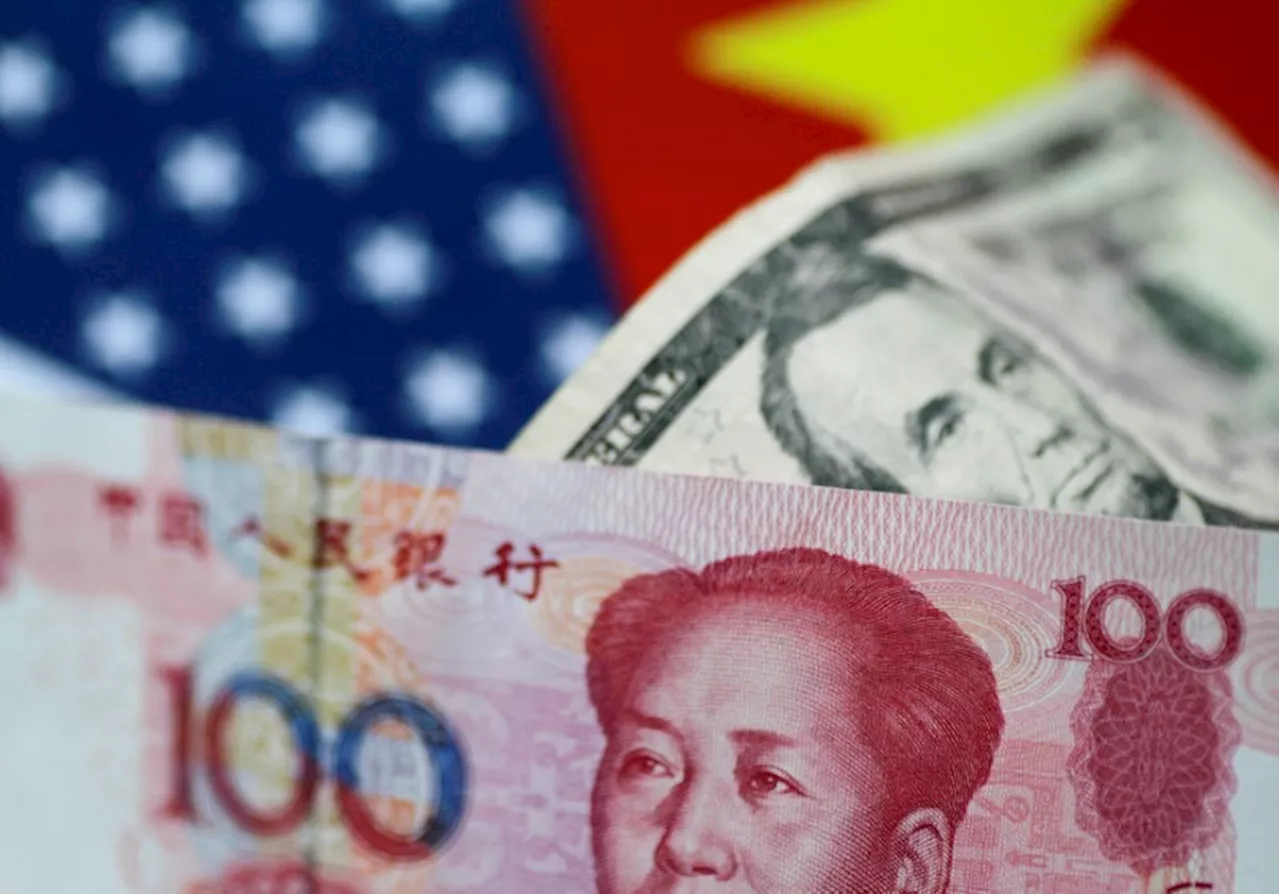The US dollar's surge following President-elect Donald Trump's victory has pushed Asian currencies to multi-year lows, raising concerns about inflation and impacting economic policies.
The U.S. dollar has appreciated sharply since President-elect Donald Trump won the 2024 presidential election, sending Asian currencies to multi-year lows. The Chinese yuan, the Japanese yen, the Indian rupee, and the Korean won are among currencies that have fallen in recent weeks. The decline in currencies has fueled worries over imported inflation and could complicate efforts by central banks to steer domestic economic policy .A relentless rise in the U.S.
dollar has sent Asian currencies such as the Japanese yen, South Korean won, Chinese yuan and the Indian rupee reeling to multi-year lows against the greenback. While a cheaper currency could in principle make exports competitive just as President-elect Donald Trump threatens to impose tariffs, central banks in Asia would need to assess its impact on imported inflation and avert speculative bets on a sustained weakness in their currencies that could complicate policymaking, analysts said.The U.S. dollar has sharply appreciated since Trump won the 2024 presidential election, rising about 5.39% since the election on Nov. 5 stateside. Part of the reason behind the U.S. dollar strength is the policies Trump had promised on the campaign trail, including tariffs and tax cuts, which are seen by Federal officials at their December meeting expressed concern about inflation and the impact that President-elect Donald Trump's policies could have, indicating that they would be move slower on interest rate cuts because of the uncertainty, minutes released Wednesday showed.This interest rate differential has dimmed the allure of assets with lower yields, sending major Asian currencies lower and prompting some central banks including the Bank of Japan and the Reserve Bank of India to intervene. James Ooi, market strategist at online broker Tiger Brokers told CNBC that a strong U.S. dollar would make it more difficult for Asian central banks to manage their economies. A stronger U.S. dollar also makes it more expensive for Asian countries to service their dollar-denominated debt, which could lead to financial instability
US Dollar Asian Currencies Trump Presidency Inflation Economic Policy
United States Latest News, United States Headlines
Similar News:You can also read news stories similar to this one that we have collected from other news sources.
 Trump's Victory Sends US Dollar Soaring, Asian Currencies PlummetingThe U.S. dollar has surged since Donald Trump's election win, causing Asian currencies to fall to multi-year lows. This trend raises concerns about imported inflation and complicates economic policy for Asian central banks.
Trump's Victory Sends US Dollar Soaring, Asian Currencies PlummetingThe U.S. dollar has surged since Donald Trump's election win, causing Asian currencies to fall to multi-year lows. This trend raises concerns about imported inflation and complicates economic policy for Asian central banks.
Read more »
 Rising U.S. Dollar Sends Asian Currencies to Multi-Year LowsThe U.S. dollar has surged since Trump's election victory, pushing Asian currencies to multi-year lows. The stronger dollar raises concerns about imported inflation and policy challenges for Asian central banks.
Rising U.S. Dollar Sends Asian Currencies to Multi-Year LowsThe U.S. dollar has surged since Trump's election victory, pushing Asian currencies to multi-year lows. The stronger dollar raises concerns about imported inflation and policy challenges for Asian central banks.
Read more »
 Asian Currencies Weaken Amid Strong Dollar and Slowing Chinese GrowthMost Asian currencies fell against the US dollar on Tuesday, driven by a strong dollar and concerns over slowing Chinese economic growth.
Asian Currencies Weaken Amid Strong Dollar and Slowing Chinese GrowthMost Asian currencies fell against the US dollar on Tuesday, driven by a strong dollar and concerns over slowing Chinese economic growth.
Read more »
 Asian Stocks Fall as Strong Dollar Weighs on Yen, Yuan, and EuroAsian markets experienced declines on Wednesday, primarily due to the robust performance of the U.S. dollar, which exerted downward pressure on the yen, yuan, and euro. Traders anticipate a cautious approach from the Federal Reserve regarding rate cuts, citing the stable U.S. economic outlook.
Asian Stocks Fall as Strong Dollar Weighs on Yen, Yuan, and EuroAsian markets experienced declines on Wednesday, primarily due to the robust performance of the U.S. dollar, which exerted downward pressure on the yen, yuan, and euro. Traders anticipate a cautious approach from the Federal Reserve regarding rate cuts, citing the stable U.S. economic outlook.
Read more »
 Strong US Dollar Pushes Asian Currencies to Multi-Year LowsThe US dollar has surged since President-elect Donald Trump's victory, causing Asian currencies like the Japanese yen, South Korean won, Chinese yuan, and Indian rupee to plummet to multi-year lows. This decline raises concerns about imported inflation and could complicate central banks' efforts to manage domestic economic policies.
Strong US Dollar Pushes Asian Currencies to Multi-Year LowsThe US dollar has surged since President-elect Donald Trump's victory, causing Asian currencies like the Japanese yen, South Korean won, Chinese yuan, and Indian rupee to plummet to multi-year lows. This decline raises concerns about imported inflation and could complicate central banks' efforts to manage domestic economic policies.
Read more »
 Australian Dollar Gains on China Manufacturing Data Despite Strong US DollarThe Australian Dollar strengthened against the US Dollar following the release of China's Caixin Manufacturing PMI. While the index unexpectedly fell, it remained in expansionary territory for the 14th consecutive month. This positive signal for the Chinese economy, a key trading partner for Australia, supported the AUD. Meanwhile, the US Dollar Index reached multi-year highs due to the Federal Reserve's hawkish shift in monetary policy.
Australian Dollar Gains on China Manufacturing Data Despite Strong US DollarThe Australian Dollar strengthened against the US Dollar following the release of China's Caixin Manufacturing PMI. While the index unexpectedly fell, it remained in expansionary territory for the 14th consecutive month. This positive signal for the Chinese economy, a key trading partner for Australia, supported the AUD. Meanwhile, the US Dollar Index reached multi-year highs due to the Federal Reserve's hawkish shift in monetary policy.
Read more »
